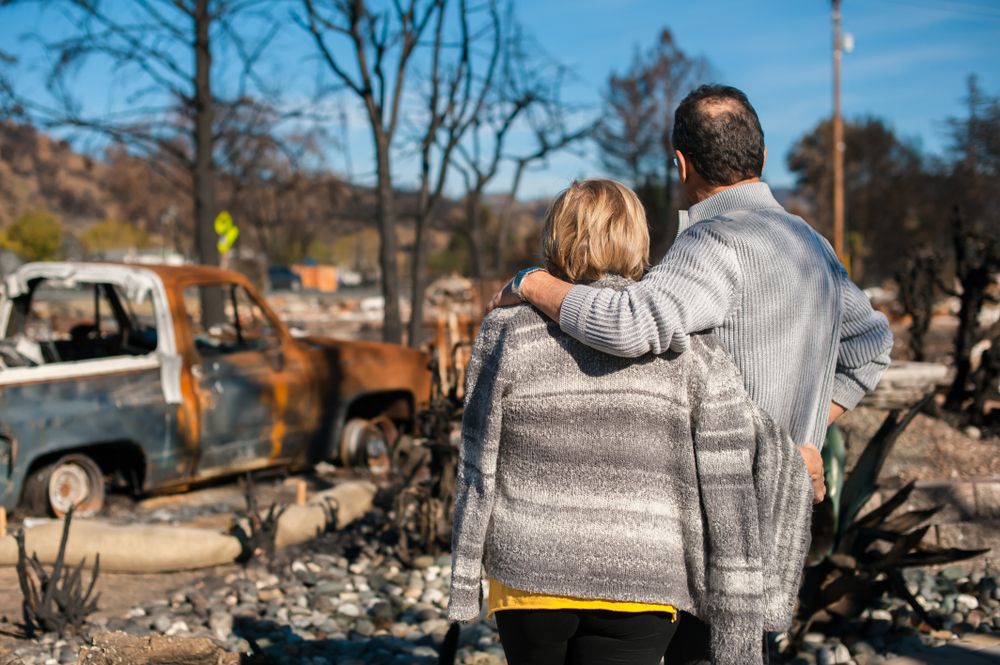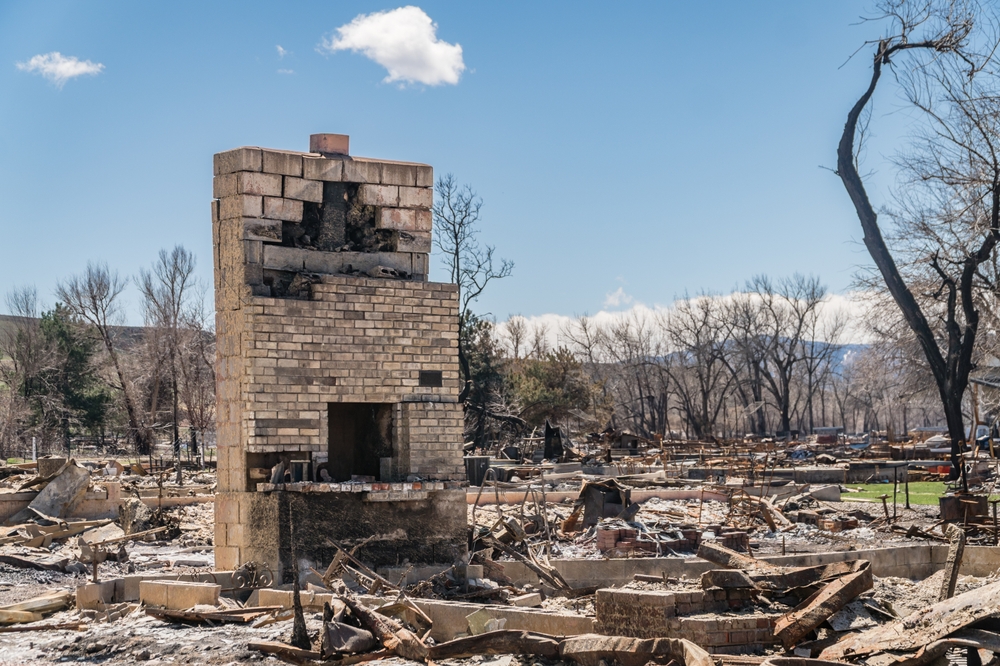
Fighting for California Wildfire Victims
Losing your home or property to wildfire is devastating. California property owners have legal rights when wildfires damage their property, especially when utility companies or other parties are at fault. With recent wildfires causing unprecedented damage—including the 2025 Los Angeles fires that resulted in over $250 billion in estimated losses—understanding your rights has never been more critical. AskLitigation is here to help you understand your rights and pursue fair compensation.
The Growing Wildfire Crisis in California
California continues to face an escalating wildfire crisis. The 2025 Los Angeles wildfires alone destroyed more than 18,000 homes and structures, forcing over 200,000 people to evacuate. UCLA Anderson Forecast estimates total property and capital losses between $95 billion and $164 billion from these fires alone.
The 2024 California wildfire season saw 8,018 wildfires burning over one million acres, destroying 2,077 structures and damaging 397 additional structures. These statistics underscore the urgent need for property owners to understand their legal rights and recovery options.
What Is Wildfire Property Damage?
Wildfire property damage claims may involve:
- Complete or partial destruction of homes and buildings
- Damage to personal property and belongings
- Business property and equipment losses
- Vehicles destroyed by fire
- Landscaping and agricultural damage
- Contamination from fire retardants or debris
- Smoke damage and soot contamination (recently expanded coverage area)
- Loss of use and additional living expenses
- Diminished property values in fire-affected areas
California Laws on Wildfire Property Damage
California has specific protections for wildfire victims, strengthened by recent legal developments:
Inverse Condemnation Liability
Strict Liability Standard: Under California's inverse condemnation doctrine, utility companies can be held liable for wildfire damage caused by their equipment, even without proving negligence. Recent 2024 court decisions have reaffirmed that privately-owned utilities are subject to the same strict liability as public entities.
Enhanced Insurance Protections
- Insurance bad faith protections with expanded enforcement
- Fair Claims Settlement Practices Regulations with stricter penalties
- Smoke damage coverage now explicitly recognized by California courts
- California FAIR Plan expansions for high-risk properties
Utility Safety Requirements
- Mandatory Wildfire Mitigation Plans required by California Public Utilities Code Section 8387
- Enhanced vegetation management and equipment inspection requirements
- Public Safety Power Shutoffs (PSPS) protocols with liability implications
Major Recent Settlements and Compensation Trends
Understanding recent settlement patterns can help property owners gauge potential compensation:
Historic Utility Settlements
- PG&E Camp Fire Settlement (2018): $13.5 billion settlement fund for victims
- Southern California Edison settlements: Multiple billion-dollar settlements, including $1.16 billion for Thomas Fire damages
- PG&E Dixie Fire Settlement (2023): $24 million settlement with Shasta County and other entities
Recent Legal Developments
Property owners who accepted utility companies' initial settlement offers typically received significantly less compensation than those who pursued full legal claims. This underscores the importance of legal representation before accepting any settlement offers.
Steps to Take After Wildfire Property Damage
Immediate Actions
- Ensure safety first - Follow all evacuation orders and emergency protocols
- Document everything - Take comprehensive photos and videos before any cleanup begins
- Contact insurance immediately - Report claims within required timeframes
- Preserve evidence - Don't dispose of damaged items without insurance adjuster approval
Legal Protection Steps
- Keep detailed expense records - Document all costs related to temporary housing, meals, and emergency purchases
- Don't accept quick settlement offers - Initial offers are typically well below fair value
- Understand your coverage - Review both traditional insurance and California FAIR Plan benefits
- Consult legal counsel early - Statutes of limitations vary, and early action preserves your rights
Dealing with Insurance Companies
With over 555,000 residential policies now in force with the California FAIR Plan (up 23% from 2024), many property owners are navigating complex coverage scenarios. Recent regulatory actions have expanded coverage requirements, particularly for smoke damage claims.
What Damages Can You Recover?
California wildfire victims may be entitled to comprehensive compensation:
Property-Related Damages
- Full replacement cost for destroyed structures (not just depreciated value)
- Personal property losses at replacement value
- Land restoration costs including debris removal and soil remediation
- Code upgrade costs when rebuilding to current standards
Living and Business Expenses
- Additional Living Expenses (ALE) during displacement
- Loss of rental income from damaged investment properties
- Business interruption losses with expanded coverage for smoke-related closures
- Lost wages due to evacuation or property damage
Legal and Additional Costs
- Attorney's fees and costs (often recoverable in utility liability cases)
- Expert witness fees for property valuation and damage assessment
- Interest and penalties for delayed insurance payments
Recent Insurance Developments and Your Rights
California FAIR Plan Updates
The California FAIR Plan has undergone significant expansions in 2024-2025:
- Increased coverage limits for commercial properties up to $100 million aggregate
- New home hardening discounts for wildfire-resistant improvements
- Expanded smoke damage coverage following recent court decisions
Bad Faith Insurance Claims
Recent enforcement actions by California's Insurance Commissioner against the FAIR Plan for improperly denying smoke damage claims demonstrate strengthened consumer protections. Property owners now have enhanced rights when insurers:
- Unreasonably delay claim processing
- Undervalue property damage
- Deny valid claims without proper investigation
- Fail to explain coverage denials clearly
Frequently Asked Questions About California Wildfire Property Damage Claims
Can I sue a utility company for wildfire damage in California?
Yes, California law allows property owners to hold utility companies liable for wildfire damage caused by their equipment under the inverse condemnation doctrine, even without proving negligence. Recent 2024 court decisions have reaffirmed this strict liability standard for both public and private utilities.
How long do I have to file a wildfire property damage claim?
Insurance claims should be filed immediately after damage occurs. Legal claims against responsible parties typically have a statute of limitations of 2-3 years from the date of damage discovery, but this can vary depending on the specific circumstances and type of claim.
What if my insurance company denies my wildfire claim?
You may have grounds for a bad faith insurance claim if your insurer unreasonably denies, delays, or underpays your valid wildfire damage claim. Recent regulatory actions have strengthened consumer protections, particularly for smoke damage claims that were previously disputed.
Is smoke damage from wildfires covered by insurance in California?
Yes, smoke damage is increasingly recognized as covered damage. The California Supreme Court confirmed in 2024 that 'damage caused by noxious substances or odors' like smoke may be covered where a policy includes such provisions. Recent enforcement actions have strengthened this coverage.
How much compensation can I expect for wildfire property damage?
Compensation varies widely based on property value, extent of damage, and coverage types. Recent major settlements include PG&E's $13.5 billion Camp Fire settlement fund. Property owners who pursue full legal claims typically receive significantly more than those accepting initial utility company offers.
What is the California FAIR Plan and how does it help wildfire victims?
The California FAIR Plan provides basic fire insurance coverage for high-risk properties when traditional insurers won't provide coverage. Recent updates include increased coverage limits, home hardening discounts, and expanded smoke damage coverage. Over 555,000 residential policies are currently in force.
Browse Articles for "Property Damage" in California:
Start Your FREE Consultation
Complete the form for a Free Consultation. No upfront fees, swift action, and we’re only paid when we succeed for you.
Ask Us If You Qualify
We’re here to help you take on your fight—whether it’s a car accident, a dangerous drug, or a workplace injury gone wrong. One call starts it all, and we’re with you every step, no upfront cost required.
- Free Case Review
- No Fees Until Victory
- Millions Recovered
- Personal Strategy
- California Coverage
- Relentless Case Pursuit

